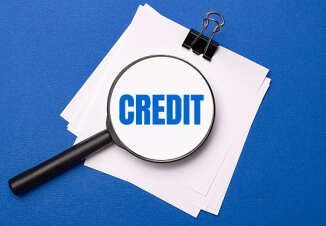The content on this page is accurate as of the posting date; however, some of the offers mentioned may have expired.

What is no credit history? Before we get an answer to this question we should first know what a credit history is and the factors that go into the making of a credit history.
A credit history or a credit score consists of a person's past loan details, how he/she repaid those loans, whether he was late in repaying and at any point of time declared bankruptcy. This is the information a credit history of a person will provide. Most countries maintain credit history of their citizens through various established credit bureaus. A good or bad credit history will reflect on a person’s reputation as a borrower.
When you apply for a credit card, bank loan or store in the US your application will be forwarded to a credit bureau for verification of your past financial transactions. The bureau with the help of the details given in your application equate it with the information filed in their reports and prepare your past credit record. This record will determine the outcome of your loan application. So it becomes significantly important for the lender, borrower and other people involved in the loaning process to provide correct and timely transaction details to the credit bureau or agency.
A bank or a credit card company evaluates a person’s ability, and keenness to pay back his/her loans by going through this record and decide his worthiness to avail a credit. In other words, your credit worthiness is determined by how punctual you were in paying your monthly loan installments in the past. Lenders oblige readily to borrowers who pay back their loans timely.
There was much debate on the accurateness of the consumer data provided by the credit bureaus. However, scientific research undertook by checking on many sample data have concluded that the reports given by these agencies are extremely accurate. This fact was acknowledged and testified by the Consumer Data Industry Association before the congress that the error margins of the reports challenged by the consumer were less than 2%. The credit bureau has a period of 30 days to check the data of a disputed credit record. However, credit bureaus generally take less than two weeks to solve most consumer disputes. More than 70% of them have been resolved and the results notified to the consumers. The out come of these results have been satisfactory to the consumer and The Federal Trade Commission have acknowledged it as well.
Income of a borrower plays a major part in deciding whether a creditor will lend money to him or not. It will also determine the size of the loan, he or she is likely to offer. A borrower can get a higher loan amount, if their monthly income is high. Nevertheless, the lender always considers factors like the consumer’s ability to repay a loan, credit history, and his income capacity. A person who has not borrowed in the past from banks, credit companies, etc., or has no records of borrowing and repaying reported to credit bureaus may be deemed as a person with a "No Credit History".







